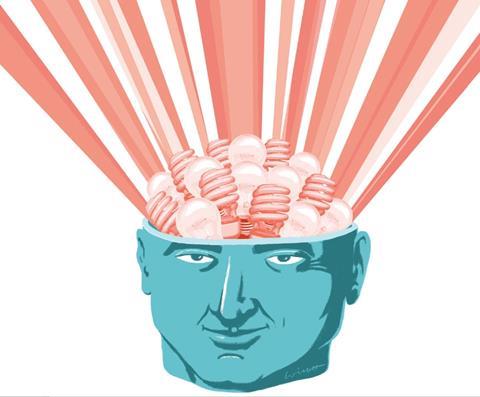Stephen Sutton was diagnosed with terminal bowel cancer when he was just 19-years-old but he used his story and social media to raise awareness and over £4m for a cancer charity. Alex Till argues that junior doctors should consider his story, not as a sob story, but as inspiration to transform care

He may have thought of himself as ”just a normal teenager”, however, Stephen Sutton - diagnosed with terminal bowel cancer - was anything but a normal teenager. He inspired an entire nation with his courage and dynamism before succumbing to cancer on 14 May.
‘Stephen displayed exemplary leadership skills and harnessed the power of social media to bring about change’
Stephen, who had aspirations to become a doctor, raised the profile and millions of pounds for the Teenage Cancer Trust, displayed exemplary leadership skills and harnessed the power of social media to bring about change.
His inspirational story demonstrates that we all have the potential to effect change.
- No more leaving it to chance: how to take charge of improvement
- Why junior doctors are innovation leaders
- A paperless future through the eyes of a junior doctor
- Visit HSJ’s Delivering Change channel for more best practice resources
A 19-year-old’s life lessons
Stephen says in his e-book “a 19-year-old’s life lessons on making the most of your time”, that people always talk about the “fight” against cancer, and that to him the most important aspect of that was to learn to live with cancer and begin measuring life in terms of making a difference.

All children and young people diagnosed with cancer - the leading cause of non-accidental death in young people - are courageous and many, like Stephen, demonstrate overwhelming humanity to raise charitable funds in what are the most challenging circumstances any individual, let alone a child or young person could face.
‘He had the emotional intelligence to harness a powerful instrument for change’
Few have done so with the power of Stephen’s blog.
He not only had the courage and tenacity that allowed him to do this and overcome the unimaginable physical and psychological barriers that his illness brought, but the emotional intelligence to harness this as a powerful instrument for change.
Tomorrow’s leaders
What is it that allowed Stephen to so successfully inspire others to follow him and act as such a powerful agent for change; and how can we, as junior doctors, learn from Stephen’s outstanding leadership skills to develop our own?
It has now been established that leadership must not just emanate from those already in established positions, but from frontline clinicians.
Yet often we find that those integral to this, our junior doctors, are underdeveloped, underutilised and feel disempowered to do so.
Perhaps within the NHS we, as junior doctors, should heed Stephen’s message and learn from his attitude towards cancer: that we must live with, rather than fight against the barriers and challenges that exist within our workplace.
‘Junior doctors must learn to live with, rather than fight against the barriers and challenges that exist within our workplace’
As Sir Bruce Keogh said, junior doctors are more than merely the clinical leaders of tomorrow, but the powerful clinical leaders of today. We should not just accept the status quo, but rather “ride the wave” of change generated nationally following the reports from Sir Robert Francis and Sir Bruce who both call for an increased recognition in the value of trainee leadership.
Critically, we must learn from Stephen; we must be proactive ourselves. We must not simply wait for change to happen around us and use this as an excuse for why we cannot do what we want to do right now.
We must recognise and take advantage of the opportunities arising from this increasing national, if not, international attention and overcome the predominate focus on service provision and traditional hierarchical leadership style that has so far limited our abilities to develop and reach our leadership potential.
As Stephen said: “Don’t be the victim of what you can’t change. Instead find ways to use your circumstances to reach even greater heights.”
Share your goals
Stephen’s Story started as a simple bucket list of experiences and through the ever increasing, phenomenal power of social media, grew far beyond anyone’s hopes and dreams for what could be achieved.
What we see through his blog is that how a simple idea, for example, speak in front of a huge crowd can grow beyond unimaginable scale and resulted in a performance at the UEFA Champions League Football Final last year - one of the biggest occasions in world sport - and speeches at Number 10 and the O2 Arena - one of the largest venues in Europe.
What we see through these, along with many of Stephen’s other remarkable achievements, is how such a simple idea, executed effectively with the right leadership and network of followers, can result in outcomes we otherwise would find hard to imagine.
‘Sharing your goals with your community is a powerful way to make them happen’
As junior doctors within healthcare, we must remember Stephen’s valuable insight that “sharing your goals with your community is a powerful way to make them happen”.
Similarly to Stephen and his followers, communication will be key to any potential success and we must demonstrate our leadership skills through sharing our vision - both through personal relationships and social media - to raise the profile of our cause, virally share good practice and effect change at scale.
Working on the frontline of medicine with patient contact 24-7, we are “invaluable eyes and ears” who hold a unique insight into patient care.
Rather than holding our frustrations and ideas to ourselves we must share these ideas among our colleagues and uphold our professional responsibility as outlined in the General Medical Council’s Good Medical Practice to “take part in systems of quality assurance and quality improvement to promote patient safety”.
Inspire a nation
Thoughts of “this is impossible” will naturally spring to mind among the majority, however we must remember Stephen.
As Stephen went on to inspire a nation, each of us too has the potential to inspire. Start simple, start small and with the right leadership you will achieve.
Aiding our ability to do this within healthcare will be the adoption of quality improvement science and utilisation of the “model for improvement”.
The Institute for Healthcare Improvement has extensive open access resources for support; we must embrace these, do the things that we want to do and exert our leadership skills to improve the quality of healthcare we as a profession and organisation provide to our patients.
‘Stephen’s story is not a sob story. It is to inspire us all to make every second count’
Stephen’s story is not a sob story. It is to inspire us all to make every second count.
We face challenging times ahead as junior doctors within healthcare. However, we must remember that like Stephen we are not just normal, we are not just junior doctors. We must not lose sight of our extraordinary potential to be some of the brightest people in the country to improve healthcare and transform the NHS into one of the safest healthcare systems in the world by leading continual improvement.
This vision will however require leadership.
As Stephen identified a simple bucket list, we must ourselves look within each and every placement to identify our own bucket list. A list of improvements; where we start with a simple idea, share this among our colleagues and utilise our leadership skills to turn these colleagues into followers, committed to improving the care we deliver, sustainably for each and every patient.
We will never know, unless we seize the opportunity, look past our limitations, barriers and challenges of what we can potentially achieve.
Dr Alex Till is academic foundation year 2 in clinical leadership and management at University Hospitals of Leicester Trust


























No comments yet